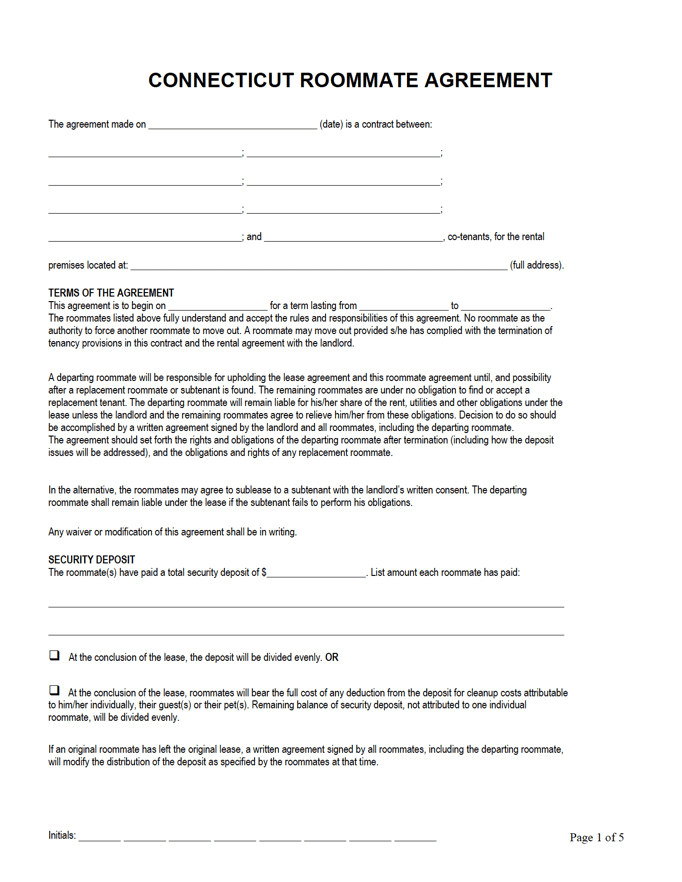Connecticut Roommate Agreement
A Connecticut roommate agreement is a legally binding document outlining the terms and conditions between individuals sharing a rental property in the state of Connecticut. This form serves as a written understanding to establish each party’s rights and responsibilities, aiming to prevent misunderstandings and conflicts. Roommate agreements are particularly useful in situations where two or more unrelated individuals decide to share a living space, ensuring a harmonious living environment.
Why a Roommate Agreement is Useful
- Clarifies each roommate’s financial obligations, such as rent and utility payments.
- Outlines each person’s responsibilities for household chores and maintenance.
- Establishes rules for shared spaces, noise levels, and guest policies.
- Provides a framework for resolving disputes or disagreements.
- Helps maintain a positive and peaceful living environment.
When to Use
- College or university students sharing off-campus housing.
- Young professionals sharing living spaces to save on rent.
- Unrelated individuals living together due to housing scarcity.
- Friends or acquaintances deciding to cohabitate.
- Individuals sharing living space as part of a house-hacking strategy.
What to Include
1. Rent and Utilities
- Specify each roommate’s share of the rent and due dates for payment.
- Detail how utility bills will be divided and paid.
- Address any penalties for late payments or non-payment.
2. Household Chores and Maintenance
- Allocate cleaning responsibilities for common areas.
- Establish a schedule for routine maintenance and chores.
- Specify expectations for personal cleanliness and hygiene.
3. Shared Spaces and Personal Property
- Define which areas of the property are considered shared spaces.
- Establish rules for the use of shared spaces and personal property.
- Address any restrictions on decorating or modifying the rental unit.
4. Noise Levels and Guest Policies
- Set expectations for acceptable noise levels during specified hours.
- Outline rules for hosting guests, including overnight stays and parties.
- Address any restrictions on smoking, alcohol, or drug use on the property.
5. Dispute Resolution
- Agree on a method for resolving disputes, such as mediation or arbitration.
- Specify a process for amending the agreement if necessary.
